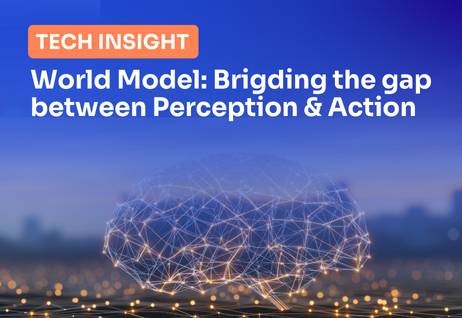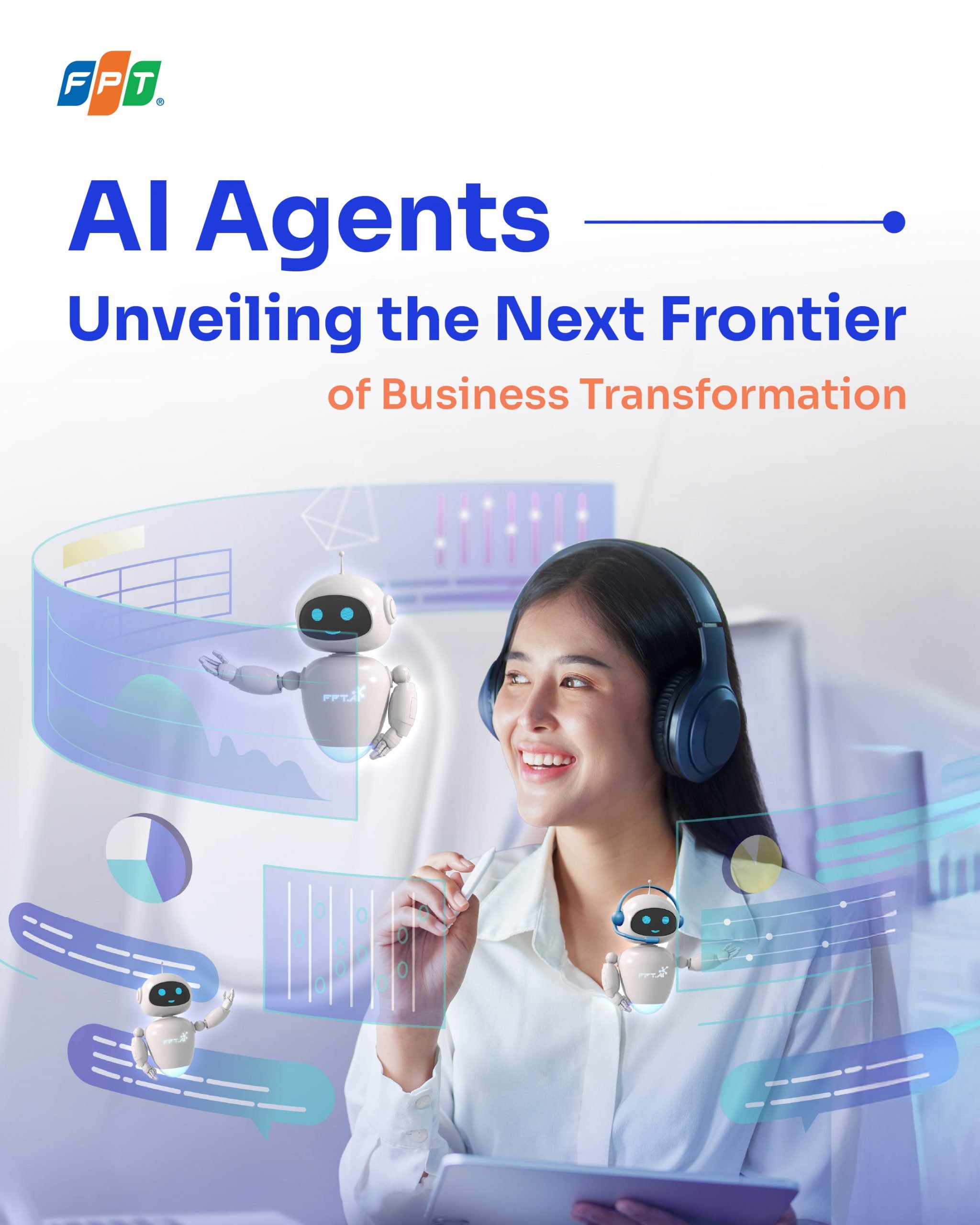A Deep Dive into the Global Artificial Intelligence Trends, Challenges, and Future Prospects
A Deep Dive into the Global Artificial Intelligence Trends, Challenges, and Future Prospects
Table of Contents
Artificial Intelligence (AI) is becoming a core engine for countries and businesses to accelerate transformation and leap ahead in the smart era. With long-term vision, governments around the world are actively advancing AI through strategic policies, infrastructure investments, and innovation ecosystems to accelerate both business growth and national competitiveness.
Across the global AI race, countries are leveraging distinct national strengths to shape their trajectories. The United States leads with a market-driven model, fueled by Big Tech and a robust culture of private-sector innovation. While China advances through a top-down national strategy, positioning AI as a core pillar of digital sovereignty and economic competitiveness. India is rapidly establishing itself as a digital powerhouse, leveraging a deep pool of tech talent and an increasingly dynamic innovation landscape. As a representative of Southeast Asia’s digital ascent, Indonesia demonstrates growing momentum in AI adoption and digital transformation. These four countries have been selected as representative markets to analyze AI trends from various perspectives.

I. The USA: Strategic Investment and AI Policy Leadership
1. Emerging Trends in the United States
Venture capital investment in AI surged to $55.6 billion in Q2/2025, marking the highest level in two years. This represents a 47% increase compared to the $37.8 billion raised in Q1, largely fueled by growing interest in AI startups, according to Reuters. While funding had previously declined from a peak of $97.5 billion in Q4/2021 to a low of $35.4 billion in Q2/2024 due to high interest rates, AI is now reversing that trend by becoming a top destination for new capital.
2. Government Initiatives and Policy Support
As one of the world’s leading technology hubs, the United States is aggressively driving AI development through a comprehensive national strategy—spanning infrastructure, policy, and talent. A key policy shift came under the Trump administration in early 2025, with the Executive Order titled “Removing Barriers to American Leadership in Artificial Intelligence,” focusing on reducing regulatory burdens and accelerating private-sector innovation to strengthen U.S. dominance in the AI race.
Altogether, the U.S. is building a robust AI ecosystem—backed by strong private capital, clear public policies, and effective public-private innovation models—laying a solid foundation to retain its leadership position in the AI era.
II. China: Centralised Planning and Technological Self-Reliance
1. Emerging Trends in China
China is investing heavily in domestic AI chips, supercomputers, big data platforms, and autonomous robotics to reduce reliance on Western technologies. Tech giants such as Baidu, Alibaba, Tencent, and Huawei are leading the charge, working alongside startups to commercialize AI across sectors like transportation, healthcare, finance, and defense.
Aligned with its strategic ambition to lead the global AI race, China is channeling close to $100 billion into AI development by 2025—over half of which is driven by state-led initiatives. This investment is anchored in the “Next Generation AI Development Plan,” reinforcing its long-term vision to position AI as a pillar of national competitiveness by 2030.
2. Government Initiatives and Policy Support
China is shaping a distinct AI development path through strong state coordination and institutional leadership. Recent national efforts focus on building a resilient AI supply chain, securing strategic technologies such as advanced chips, large language models, and sovereign data infrastructure.
In addition, this country also takes a pioneering role in global AI governance, having registered over 1,400 algorithms and introduced a suite of regulatory frameworks for generative AI, algorithmic accountability, and fair data usage.
Rather than following existing models, China is actively exporting its regulatory approach and technical standards — a signal of its ambition to influence not just the pace but also the rules of global AI development.
III. India's Dominance in the AI Landscape: A Global Powerhouse for Innovation and Startups
In a world shifting toward smarter systems and automated processes, India has become one of the most prominent players in the digital revolution that has a vast talent pool and a thriving technology sector. With over 600,000 AI professionals and 700 million internet users, India contributes 16% of the global AI talent pool, second only to the United States.
1. Emerging Trends in India
India is witnessing several significant trends in AI development, and the rise of AI-driven startups is particularly notable. According to Statista (2025), the current Indian AI market is valued between $7-$10 billion, and is projected to reach $31.94 billion by 2031, reflecting a CAGR of 26.37%. This rapid expansion highlights the market’s exceptional growth, as it is expected to more than quadruple in just six years. The growth is largely driven by India’s robust talent base and the rise of AI-driven startups that are shaping this dynamic ecosystem.
In recent years, nearly 3,000 AI startups have been launched contributing significantly to sectors like healthcare diagnostics, agricultural automation, fintech, and language processing. These startups are leveraging AI to create innovative solutions, such as personalized healthcare diagnostics and precision farming techniques. With a rapidly growing AI-driven startup ecosystem, India is on its way to becoming the third-largest startup ecosystem globally.
Furthermore, AI chatbots, virtual assistants, and automated customer service solutions are becoming a growing trend for businesses of all sizes, as they offer high efficiency while significantly reducing operational costs. This trend is expected to continue, as companies increasingly aim to enhance customer experiences and also optimize their operational processes.
2. Government Initiatives and Policy Support
With an ambitious plan to position India as a global AI leader in sectors such as healthcare, agriculture, and education, the government launched the IndiaAI initiative in 2024. This program aims to build a robust AI ecosystem by enhancing critical infrastructure, such as high-performance computing resources, to support advanced AI research and development. It also focuses on fostering innovation through funding for AI startups and establishing AI labs that serve as innovation hubs. Moreover, the initiative seeks to equip the future workforce with the necessary AI skills by integrating specialized training programs and educational resources, ensuring that India develops a highly skilled pool of AI professionals.
Additionally, the Indian government is fostering collaborations with global technology companies such as Google, Microsoft, and IBM. These collaborations help India access the latest AI technologies and implement them in local contexts, such as in agriculture, urban planning, and disaster management.
IV. The Rise of AI in Indonesia
1. Emerging Trends in Indonesia
Indonesia's AI ecosystem has gained substantial traction in recent years. The growing trend of investing in AI to transform a country like Indonesia, which currently lacks a comprehensive regulatory framework and clear guidelines for the use and mandatory training of AI across sectors, is now more crucial than ever in shaping its future technological landscape. In 2024, the country witnessed significant foreign investment in its AI sector, with two major partnerships highlighting Indonesia’s rising role in global technological innovation. Nvidia partnered with PT Indosat to invest $200 million in an AI factory and skills development program in Surakarta, aiming to build local expertise in AI technologies and provide the infrastructure needed to foster future innovations.
Following this, Microsoft made a landmark commitment to invest $1.7 billion in building cloud and AI infrastructure across Indonesia. As part of this investment, Microsoft plans to train 840,000 professionals, enhancing the country’s AI talent pool and empowering the workforce with crucial skills. These investments not only play a pivotal role in boosting Indonesia’s technological growth and enhancing the digital infrastructure, but also demonstrate a growing international confidence in Indonesia’s AI potential.
2. Government Initiatives and Policy Support
In August 2020, the government launched the Indonesia's Golden 2045 Vision, a pivotal initiative aimed at transforming Indonesia from a resource-based economy to an innovation-driven one. This ambitious strategy outlines a comprehensive roadmap for AI development across various sectors, focusing on five key policy pillars: Ethics & Policy, Infrastructure & Data, Talent Development, R&D & Industrial Innovation, and Sectoral Implementation.
Furthermore, the Indonesian government is actively driving the advancement of AI through a multitude of projects, partnering with huge businesses to implement cutting-edge solutions aimed at improving AI capabilities. Several government-led initiatives are being rolled out across various sectors, with the goal of enhancing AI technology and infrastructure. To support this vision, the government is engaging local enterprises to execute and deploy these AI projects, including those focused on research and development to enhance large language models (LLMs). As part of this strategic push, the government is also promoting the development of Interactive Generative AI, which presents ample opportunities for businesses to lead the way in driving innovation and growth in the AI sector.
V. Trends and Government Policy Support in other countries
Across the globe, nations are increasingly focused on advancing AI technology, each taking unique approaches depending on their specific needs and goals. For example, Japan’s AI Strategy is centered on integrating AI into society to address its aging population and related demographic issues, while Canada is dedicated to cultivating AI research excellence, particularly through initiatives like the Pan-Canadian Artificial Intelligence Strategy.
On the other hand, countries such as Russia and South Korea view AI as a critical tool for enhancing national security and boosting economic power, channeling investments into defense technologies, robotics, and autonomous systems. Meanwhile, in the Middle East, countries like the United Arab Emirates and Saudi Arabia are leveraging AI to accelerate economic diversification, foster innovation, and implement smart city solutions as part of their broader modernization efforts.
VI. Navigating the Risks of AI
While Artificial Intelligence offers immense potential for economic advancement and societal benefit, it also introduces a series of complex challenges and risks. Chief among these are concerns related to data privacy, algorithmic bias, and the potential for mass surveillance. As AI continues to automate various tasks, there is a growing concern regarding the displacement of workers, especially in sectors reliant on manual and repetitive tasks. Furthermore, the widespread use of AI in data processing raises critical concerns about privacy and security, as personal information is vulnerable to potential breaches, misuse, or unauthorized surveillance.
In addition, the advancement of deepfake technology presents significant risks to the credibility of information, as AI-generated content can be utilized to create misleading or entirely fabricated media.
VII. The Promising Horizons of AI in the Future
Artificial Intelligence is fast evolving from a disruptive tool into a foundational driver of global progress. In the coming decade, AI is poised to revolutionize the very foundations of how businesses operate, unleashing a wave of innovation, agility, and intelligence. According to a 2024 report from PwC, AI could contribute up to $15.7 trillion to the global economy by 2030, primarily through increased productivity, automation of routine tasks, and the creation of new markets and services.
Moreover, far from being a job destroyer, AI is also proving to be a job enhancer. The World Economic Forum's “Future of Jobs” report (2025) predicts that while AI will automate certain tasks, it will also generate 78 million net new roles globally, especially in data science, AI governance, creative sectors, and digital infrastructure. Notably, industries with high AI exposure have reported faster wage growth and higher demand for skilled professionals.












